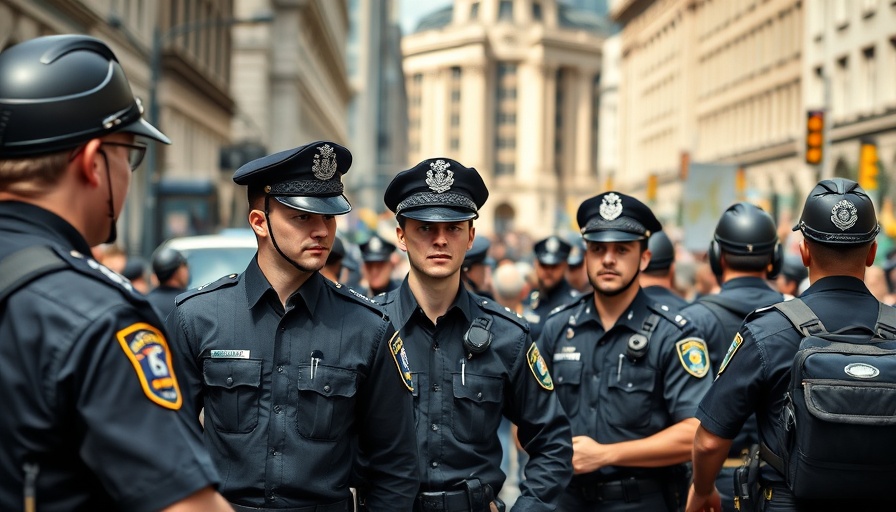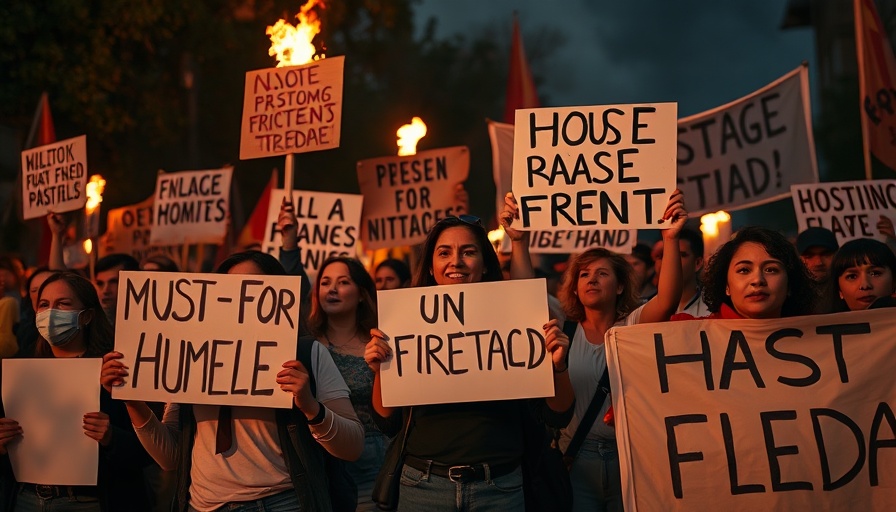
Protests Across NYC Sparked by Arrest of Mahmoud Khalil
In a dramatic escalation of civil unrest, New Yorkers have taken to the streets to voice their discontent in response to the arrest of Mahmoud Khalil, a pro-Palestinian activist. Protests unfolded at prominent locations such as Foley Square, Union Square, and Trump Tower, showcasing a collage of voices united in their demand for Khalil's release. On March 13, the situation reached a boiling point with 98 protestors arrested inside Trump Tower, highlighting the tension surrounding Khalil’s detainment.
The backdrop to these protests features not only Khalil’s activism but also a larger narrative involving issues of immigration, free speech, and civil rights. Khalil, a Columbia University student and legal U.S. resident born in Syria, has faced detainment by the Trump administration under allegations that align him with extremist groups, an assertion that his legal team vehemently disputes. Demonstrators criticized the administration's tactic of using claims of antisemitism to stifle dissent, representing a worrying trend of governmental overreach.
The protests have been predominantly organized by groups like Jewish Voice for Peace, a clear indication of the intersectionality within social movements advocating for Palestinian rights and immigrant justice. Protesters chanted slogans such as “Fight Nazis, not students” and wore shirts emblazoned with “Jews Say Stop Arming Israel,” signaling their firm stance against perceived injustices both at home and abroad.
The Legal Ramifications of Khalil's Arrest
Khalil's legal journey mirrors larger national conversations about civil liberties as his attorneys argue that the immigration action against him is a targeted attack aimed at silencing freedom of speech. This contention is bolstered by concerns raised by organizations like the Council on American-Islamic Relations (CAIR), which is challenging the legality of Khalil's detention, suggesting that it violates not only his First Amendment rights but also broader principles of justice in America.
What’s Next for Activism in New York City?
The substantial turnout for these protests indicates a rising tide of activism not only among those directly affected but also among allies and advocates who recognize the urgent need for systemic change. As protests continue, observers are left to question what the future holds for immigrant rights and the expression of dissent in the United States. New York City, historically a hub of activism, may be on the brink of a larger movement demanding accountability from government entities.
How You Can Get Involved
For those galvanized by the events surrounding Khalil’s arrest, participating in or supporting ongoing protests is one avenue for change. Engaging with local advocacy groups or utilizing social media to amplify voices critical of these actions are effective ways to align with the larger narrative of resistance against governmental oppression. As this movement grows, every voice counts in shaping a more just society.
 Add Row
Add Row  Add Element
Add Element 



Write A Comment